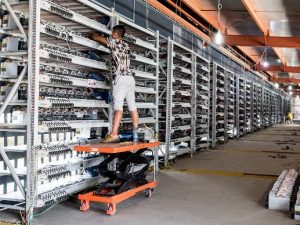Phoebe, Year 13, explores the use of Bitcoin as a currency and its potential to replace Sterling by discussing the limitations of the new currency.
Bitcoin is a cryptocurrency, which is a digital currency that uses cryptography for security, and a worldwide payment system. It is the first decentralized digital currency, meaning the system works without a central bank or single administrator. It is based on a special field of maths called cryptography which is the study of how to secure communications, this being one of the main issues with not having transactions being overseen by a central administrator. Bitcoins are created through the process of mining; where miners use special software to solve mathematical problems and are issued in exchange with bitcoins. So, to what extent does this new unregulated technology have the ability to replace sterling?
Despite the fact that Bitcoin supports the attractive libertarian utopia of a society free from government intervention, where welfare is cheaper and wealth more distributed, in reality Bitcoin currently does not pose a threat to the sterling. One of the major reasons that I will be focusing on is the unsustainable scale of computer computational power that is required in order for miners to verify transactions within the block chain system due to the increasing marginal costs for them. Miners are being imposed with a direct cost as they are forced to require more bandwidth to enable them to solve the increasingly difficult puzzles in the same time frame.
 Distributed systems such as Bitcoin’s involve a negative externality that causes over investment in computer hardware as the expected marginal revenue from the individual miners is increasing with the amount of computing power that they individually have. Not only does this increase their own marginal cost but it increases the competition within the system and thus the cost is also increasing across the entire network. “Cetirus paribus” economic theory would suggest that in equilibrium all miners are inefficiently investing in hardware while receiving the same revenue that they would have had they not invested in the extra computing power. This behaviour is irrational as it is increasing the computing power across the entire network making it harder for them to succeed individually.
Distributed systems such as Bitcoin’s involve a negative externality that causes over investment in computer hardware as the expected marginal revenue from the individual miners is increasing with the amount of computing power that they individually have. Not only does this increase their own marginal cost but it increases the competition within the system and thus the cost is also increasing across the entire network. “Cetirus paribus” economic theory would suggest that in equilibrium all miners are inefficiently investing in hardware while receiving the same revenue that they would have had they not invested in the extra computing power. This behaviour is irrational as it is increasing the computing power across the entire network making it harder for them to succeed individually.
If the cost of verification for the miners is constantly increasing, then eventually the incentive to secure the network will disappear and lead to the collapse of the system.
Therefore, due to this increasing cost of mining, Bitcoin, in its current state, does not have the potential to replace sterling.

